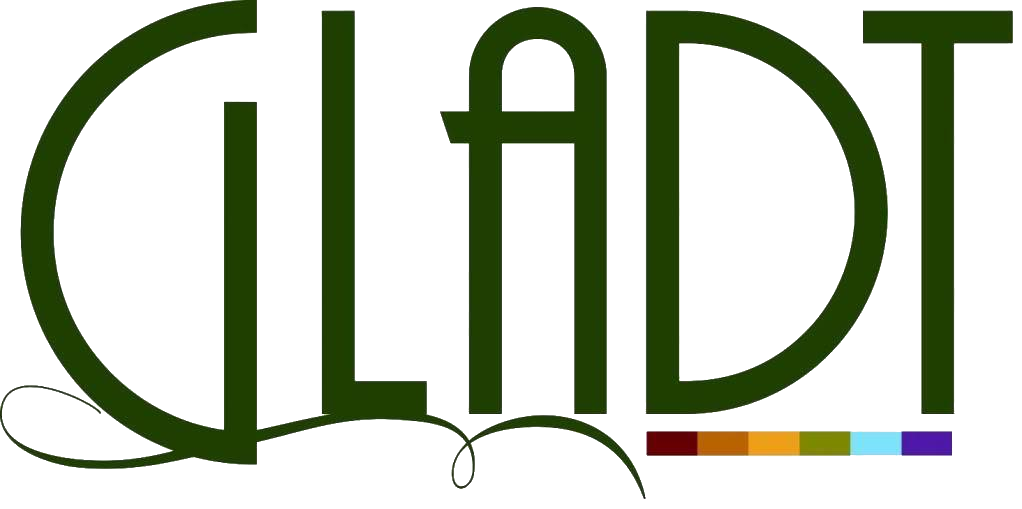A joint project between GLADT e.V. and the Archiv der Jugendkulturen e.V.
Motivation:
Political education makes its task to take up various socially relevant topics, to develop an understanding of their structures and thus to promote people’s “political ability, tolerance and critical faculties”. The goal could be described as “an increase in participation in democratic power relations.
AFrom the point of view of marginalised groups, however, it is often obvious that issues such as interests, power and domination – as the (invisible) basis of society – are not taken into consideration here. The understanding of social structures seems to be conveyed through a kind of tendency to adapt, rather than through a critique of existing power relations and reflections on the fair (new) distribution of power and resources.
“Growing up in Germany and rarely getting knowledge imparted by BIPoC speakers, teachers or trainers is not only a painful experience. The message behind it for me is: I and people who look and/or are like me could not be or become experts. “
Which social structures and groups of people are being understood? Who provides understanding about whom? Which structures and groups of people are problematised/involved, and which are not named at all? How is political education work produced about social problems? Who has or is given the sovereignty of interpretation, power and resources to shape political education work? These are some of the many power-critical questions that intersectional political education providers such as GLADT e.V. have (had to) deal with for many years now without much resources.
“BIPoC lecturers not only contribute to the self-reflection and further education of female students, but they also pass on their knowledge and know-how, free of charge to their white colleagues who are hardly aware of it.”
It was only through the interest of individuals from the established Archiv der Jugendkulturen e.V., where the internal structure of the staff – both permanent employees and freelancers – are still predominantly characterised by white, cis-gender, heterosexual and educated middle-class socialised people, that we as GLADT e.V., and thus long-standing experts, were given the chance to obtain resources that can be used to answer these questions.
“(Un)Wissen, welches von weißen Cis-Männern vermittelt wird, wird angenommen als wären es Dollarscheine. Studierte BIPoC mit jahrelanger Berufserfahrung müssen hingegen erstmal beweisen, dass sie nicht “dumm“ sind.”
Project:
The people and organisations in power underestimate the extent of the uneasiness that goes hand in hand with the focus on attitudes critical of power, racism and the creation of an inclusive structure. It moves into the spotlight where privileges exist and where changes need to be made. Both the political education work itself and its well-equipped sponsors show resistant behaviour when it comes to viewing their own contents and structures in a power-critical and racism-oriented way.
This model project is intended to develop answers and strategies for the following aspects:
- Why are bearers themselves predominantly white, cis-gender, heterosexual, educated middle-class, non-disabled and powerful, even though their political education work is mainly focused on socio-political discourses and syndromes of group-related misanthropy such as right-wing extremism, racism, anti-Semitism and sexism, etc.?
- Why do people with experiences in the fields of racism, (cis)sexism, trans*enmity, classism, abhorrence, etc. have so little access to political education institutions, both as participants and providers?
- How can political education work be designed in such a way that the marginalised socio-political conditions are given more visibility, understanding and a change of perspective so that a new design is promoted and made possible through the distribution of power?
Political education work critical of power and racism
Political education work has the task of imparting knowledge about social conditions and power structures to all population groups and communities, regardless of their social background.
With regard to people who occupy more privileged positions in society, political education work should show a way to deal responsibly with one’s own positioning and social power differentials. Furthermore, educational work critical of power and racism questions the majority white dominance in socially relevant institutions and their influence on decision making.
With regard to marginalised people, on the other hand, political education work should pursue the goal of providing these people with tools to understand and name their own oppressive relationships – e.g. sexism, racism, homophobia and transophobia or social status/class – and to be able to work out and effectively represent their own interests in the democratic participation process. Raising awareness of social grievances and discrimination mechanisms through political education institutions* can accordingly lead to a power-critical attitude with an empowering effect. In a further step, this can strengthen community structures, so that solidarity alliances among de-privileged communities can be promoted.
“Wallah, my neighbour Dalya, who was given neither a degree nor any other form of resource or access, taught me more than any white lecturer in Almania.”
Political Education Work from an Intersectional Perspective
In our new short film, we explore the question of what political education actually means and when should we speak of intersectionality? How do experts work in this field and the most important question: What are their demands?
Thanks to Stefanie-Lahya Aukongo, Ed Greve, Olenka Bordo Benavides for the interviews and sharing valuable knowledge and to Nina Laçin for the great filming.
Funded by:

